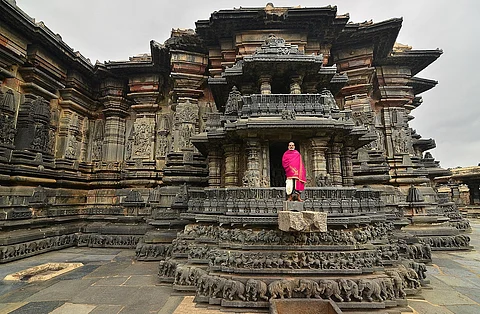

'Sacred Ensembles of the Hoysala,’ the Hoysala temples at Belur, Halebidu, and Somanathapur in Karnataka have now been officially designated as UNESCO World Heritage Sites. The declaration made on September 18 is expected to boost international tourism to these locations and enhance their global standing.
This designation marks India's 42nd UNESCO World Heritage Site, and the announcement was made by UNESCO on September 18 via X, formerly known as Twitter. This UNESCO recognition comes shortly after Santiniketan in West Bengal, where Rabindranath Tagore established Visva-Bharati over a century ago, also received the prestigious status.
As the temples have been on UNESCO's tentative list since April 15, 2014, India pressed the case for their inclusion in the list for 2022-23. All three Hoysala temples are already under the protection of the Archaeological Survey of India (ASI).
The Hoysala temples, spread throughout Karnataka, are renowned for their distinctive architectural style and characterised by ornate designs following a stellate plan on raised platforms. They are constructed using chloritic schist, commonly known as soapstone, which is soft and ideal for intricate carvings.
"More pride for India! The magnificent Sacred Ensembles of the Hoysalas have been inscribed on the @UNESCO World Heritage List. The timeless beauty and intricate details of the Hoysala temples are a testament to India's rich cultural heritage and the exceptional craftsmanship of our ancestors," Prime Minister Narendra Modi posted on X.